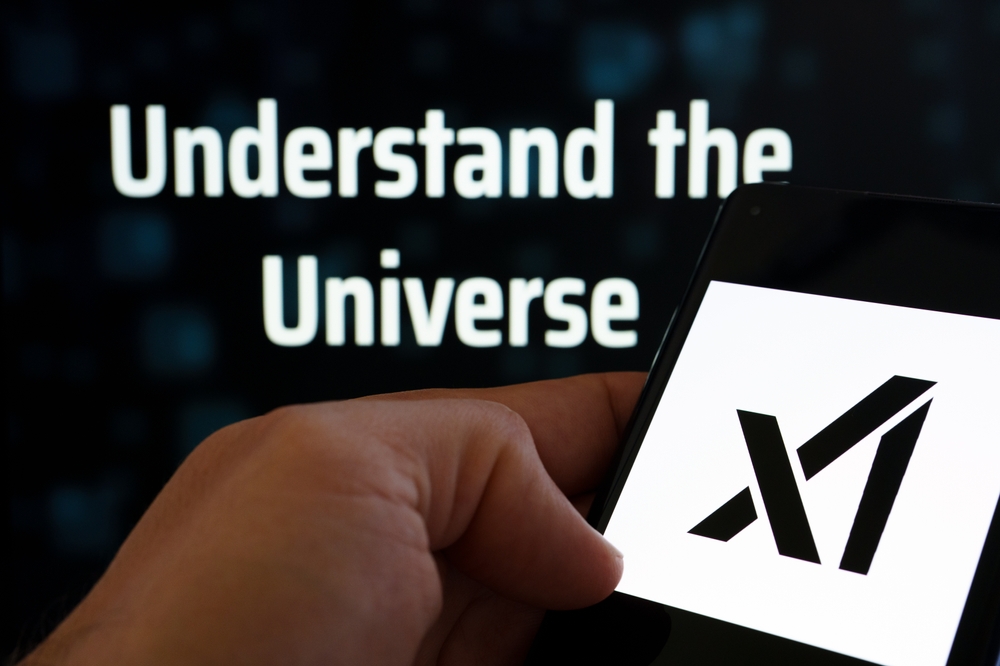Know-how has lengthy influenced the genesis of language and tradition, which traces again to the earliest types of writing.
The medium itself – cave partitions, stone tablets, or paper – formed how language was used and perceived.
As we speak, AI and its associated phrases are getting into the lexicon, underscoring its rising cultural influence. Generative AI like ChatGPT, as soon as the mutterings of a choose few AI fanatics, has shortly develop into a family identify accessed by billions of month-to-month customers.
Reflecting the influence of AI on in style tradition, the Cambridge Dictionary not too long ago named “hallucinate” as their phrase of the 12 months, including a brand new AI-centric definition; “When a synthetic intelligence (= a pc system that has among the qualities that the human mind has, resembling the flexibility to provide language in a method that appears human) hallucinates, it produces false data.”
Merriam-Webster adopted go well with, naming “genuine” as its phrase of the 12 months, describing the way it’s develop into more and more tough to find out whether or not data or content material is actual or not, partly as a result of affect of AI deep fakes.
AI know-how additionally parallels influential applied sciences from the previous and their cultural-linguistic impacts. For example, the arrival of the printing press within the fifteenth century revolutionized language, introducing new ideas like typography, punctuation, and standardized spelling.
As know-how developed, so did language, adapting to every new medium’s constraints and potentialities. Within the twenty first century, the web and digital communication have created quite a few neologisms and mixing of phrases, such because the widespread use of prefixes like “cyber-” and “e” as in eCommerce and e mail.
Exploring AI’s influence on linguistics presents a surface-level view of how know-how influences language.
However when you delve deeper, you understand this linguistic shift is simply the tip of the iceberg.
It raises a broader commentary on how AI influences language and tradition now, and may develop into the driving pressure behind cultural genesis and data creation sooner or later.
AI and cultural and data genesis
In an essay printed by The Economist, the authors examine AI’s internalization of information and tradition to the labyrinthine corridors of Argentinean writer and librarian Jorge Luis Borges’ “The Library of Babel,” an infinite expanse of hexagonal rooms holding the vastness of human potential and folly.

Every room, lined with books stuffed with each conceivable association of letters and symbols, represents the limitless permutations of each data and nonsense. This library, a metaphor for the universe, is an allegory of each the pursuit of that means and the overwhelming abundance of knowledge.
A parallel unfolds on this planet of AI, notably within the sprawling networks of generative AI.
Frontier generative AI fashions, just like the grand library, are repositories of human thought and tradition, educated on huge datasets encompassing considerably of the breadth of human data and creativity. Very like the books in Borges’ library, the outputs of those AI programs vary from profound insights to bewildering gibberish, from coherent narratives to incoherent ramblings.
The Library of Babel captivated the creativeness of Brooklyn writer and coder Jonathan Basile, who launched an internet site by the identical identify in 2015. This digital incarnation of Borges’ library generates each doable permutation of 29 characters (the 26 English letters, house, comma, and interval), producing ‘books’ organized right into a digital library of hexagonal rooms.
Every guide and web page has a singular coordinate, permitting customers to seek out the identical web page constantly. It makes use of an algorithmic which simulates the expertise of an infinite library. The web site garnered consideration for exploring the intersection between digital media and literature and the query of information, that means, and the human expertise within the digital age.
Critics have famous how the web site, very similar to Borges’ unique story, challenges our notions of that means and the human pursuit of understanding in a universe of countless data.
Literature scholar Zac Zimmer wrote in Do Borges’s librarians have our bodies?: “Basile’s is maybe probably the most completely dehumanizing of all Library visualizations, in that past being pushed to suicidal insanity or philosophical resignation, his Librarians have develop into as devoid of that means because the gibberish-filled books themselves.”
Whereas the Library of Babel presents a compelling instance for AI, in contrast to the library, AI can not at present seize the breadth of human data and tradition. It’s confined by its coaching information with restricted capability to induct new data.
Besides, its huge computational energy mirrors the library’s countless cabinets, providing countless potentialities but trapped within the chaos of its personal creation.
The Library of Babel, with its seemingly infinite mixtures of letters, confronts the reader with the existential dilemma of discovering order in chaos. With AI, this manifests within the rigidity between the potential for AI to light up and to mislead.
Much like the library, AI doesn’t discriminate between sense and nonsense – it generates, detached to the that means or lack thereof. Each the Library of Babel and the world of AI subtly critique the human quest for data.
In its overwhelming vastness, Borges’ library challenges the notion that extra data results in larger understanding.
Equally, the ever-expanding capabilities of AI immediate reflection on the character of intelligence and understanding.
The flexibility of AI to generate content material will not be synonymous with comprehension or knowledge – it’s highly effective but blind to the importance of its personal outputs.
However may that change?
How may AGI change the material of information and tradition?
Synthetic normal intelligence (AGI) could deliver AI know-how nearer to the enigmatic and boundless Library of Babel. AGI is usually outlined as possessing the flexibility to grasp, study, and apply its intelligence to all kinds of issues, very similar to a human being.
In contrast to slender AI, which is designed for particular duties, AGI can generalize its studying and reasoning throughout a broad vary of domains. It possesses self-awareness, adaptability, and the capability to resolve complicated issues in numerous fields with out human intervention or pre-programming. AGI stays a theoretical idea, however OpenAI – now outlined as an ‘AGI analysis lab’ – says it may be achieved in just a few years.
So, think about, if you’ll, a world the place AGI has transcended the constraints of present synthetic intelligence, embodying a functionality that mirrors the theoretical completeness of Borges’ Library.
This AGI is not only a complicated instrument however an entity able to inducting, analyzing, and synthesizing just about all human data and maybe venturing into realms of understanding that stay elusive to human cognition.
On this world, the AGI turns into akin to a residing, respiration model of the Library of Babel. But, in contrast to Borges’ creation, which is paralyzed by its infinite content material, AGI can navigate, interpret, and provides context to this huge expanse of knowledge.
If AGI might entry goal realities – in the event that they exist – it may very well be juxtaposed with Plato’s Idea of Varieties, an concept that has captivated thinkers for millennia. Plato imagined that past our tangible, ever-changing world lies a realm of excellent, unchanging beliefs or “varieties.”

These varieties are the purest essence of issues – for instance, the right type of a circle, untainted by the imperfections of the bodily circles we draw.
Now, envision AGI on this context. As we speak’s AI can analyze information and acknowledge patterns, however it’s restricted to what it has been taught. AGI, nonetheless, represents a leap right into a realm the place it can not solely course of data however doubtlessly perceive the underlying truths of our universe – truths that could be obscured or unknown to human minds.
Plato believed that what we expertise in our every day lives are mere shadows of those excellent varieties. We are able to see a circle, draw one, however it’s by no means the right circle that exists as a super type. Within the realm of AGI, this intelligence might, in concept, start to understand or uncover these excellent varieties.
It’s as if AGI might step past merely seeing the shadows on the cave wall (to borrow from Plato’s well-known allegory) and gaze instantly on the true varieties themselves.
This AGI wouldn’t simply be a instrument for processing information – it might develop into a method of discovering new, profound insights into summary ideas like magnificence, justice, equality, and even the secrets and techniques of the universe.
It may not simply perceive these beliefs as people do however might redefine them, providing a perspective unfettered by human limitations and biases.
So, in a way, AGI – the sort we would entry in mid-term (let’s say 20, 30 years) – may very well be a bridge to a deeper understanding goal, excellent realities.
It represents a risk the place know-how doesn’t simply help in our present understanding of the world however elevates it to a stage we have now not imagined, like stepping out of a shadowy cave into the brilliant gentle of deeper data.
Can AGI ever detach from its limitations or biases?
AGI, whereas simple to idealize, will probably be exceptionally difficult to untether from the constraints of its designers – people.
Furthermore, the sorts of brute pressure computing energy we have now now doubtless impose a ceiling for AI intelligence. Nevertheless, options are within the pipeline, resembling bio-inspired AI know-how designed to imitate buildings like human neurons.
However there are challenges that lie past know-how alone – how will AGI detach from the conceits of its creators?
Elon Musk’s issues about AI being programmed to be “politically right,” expressed earlier than he launched his AI firm, xAI, mirror a bigger dialog concerning the biases inherent in AI programs.
Musk’s combined stance on AI is certainly one of each warning and advocacy for its potential. He’s develop into considerably of a critic of business protagonists like OpenAI, whom he’s actively confronting with xAI’s merchandise, starting with Grok. Grok throws political correctness to the wind, delivering responses that verge on anarchistic.
In the meantime, AI fashions, resembling ChatGPT, have perceived ‘woke’ biases, which research have considerably confirmed by figuring out they’ve liberal leftist bias. Bias can usually be traced again to the info a mannequin is educated on and the intentions of its creators.
The query then arises: can AGI, with its superior cognitive skills, transcend the biases which were some extent of rivalry in present AI fashions?
Fact-seeking AI
Musk vowed to create “truth-seeking AI” designed to determine “what the hell is occurring.”
Musk’s mission for xAI is to delve into basic scientific enigmas resembling gravity, darkish matter, the Fermi Paradox, and doubtlessly even the character of our actuality. In fact, that can require fashions far past what we will entry right now.
From what little data we have now of xAI, Musk appears intent on transcending the constraints of present AI architectures, that are largely confined to producing outputs primarily based on current information.
Musk intends to create an AI that synthesizes data and generates pioneering concepts. This quest for ‘fact’ in AI goes past the traditional understanding of AI as a instrument for processing data and ventures into the realm of AI as a associate in scientific discovery and philosophical exploration.

Nevertheless, present AI fashions, together with subtle ones like GPT-4, stay restricted by the info they’ve been educated on. They excel at sample recognition and knowledge synthesis however can not conceptualize or theorize past their programming.
Such a leap in the direction of types of AGI that may pioneer their concepts and launch their very own inquiries raises crucial questions concerning the nature of intelligence and consciousness.
If xAI have been to start out offering solutions to among the basic questions of our existence, it could necessitate a reevaluation of what it means to ‘know’ one thing. It will blur the traces between human and synthetic understanding, between data derived from human expertise and thought, and that generated by a synthetic entity.
Furthermore, the ambition to create an AI that transcends politics and seeks an goal ‘fact’ introduces moral concerns. The notion of an unbiased AI is interesting however fraught with complexities.
All AI, together with AGI, is in the end created by people and educated on human-generated information, not less than initially.
This course of inherently introduces biases – not simply within the type of current prejudices but additionally in choosing what information is included and the way it’s interpreted.
The concept of an AI that may utterly detach from these human biases and obtain a purely goal understanding stays deeply hypothetical.
Sooner or later, maybe, we would have to simply accept that AGI will perceive greater than anyone human ever can.

